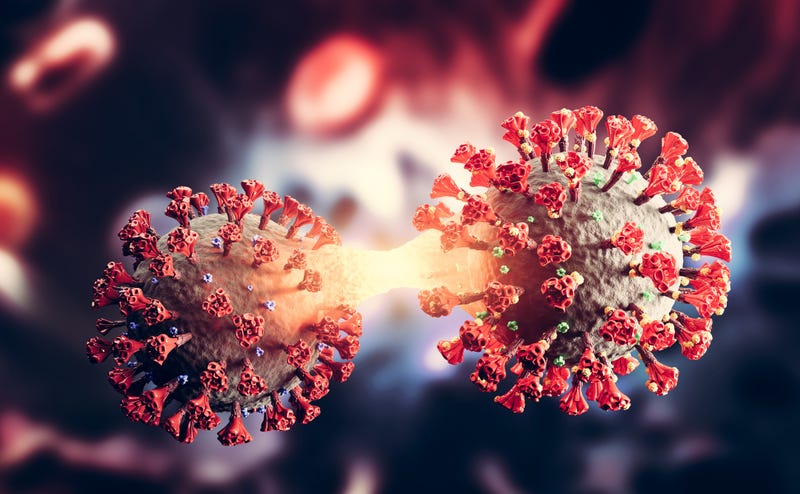
SAN FRANCISCO (KCBS RADIO) – New research shows that SARS-CoV-2 may be hiding in the fat cells of the body.
For more, stream KCBS Radio now.
According to a study released by Stanford University last week, the virus that causes COVID-19 can directly infect fat.
This relationship means that the virus then replicates itself inside these fat cells, which then leads to inflammation in the immune cells also in the fat tissue.
There are two specific cell types that are found in fat tissue "that all of us have, whether lean or obese and that it can drive inflammation there which is certainly not something we wanted to see," said Dr. Catherine Blish, an immunologist and professor at Stanford University and one of the senior authors of the study on KCBS Radio's "Ask an Expert" with Meliss Culross and Eric Thomas on Friday.
The likelihood of this happening is not necessarily dependent on people’s body type. In analyzing autopsy samples from people who died from COVID-19, this type of inflammation was found in every person except for one, regardless of whether they were lean or obese.
"That said, people who are obese do have an increased amount of total fat tissue so it's possible there could be more inflammation in people who are obese," said Blish. "And that can contribute to the disease."
Although the virus continues to be present in fat tissue, the odds of that contributing to relapse or reinfection are relatively low. And it's unclear just how long the virus remains in the fat tissue after the initial infection.
The samples used for the study were taken from people who had passed away just days or under a couple of weeks after getting infected.
Whether this is something that other viruses can do also remains to be seen as it is an understudied area, according to Blish.
"There's very little evidence that the fat cells themselves can be infected by many viruses but in all honesty in general people haven't looked before," she said.
However, there is a similar link between influenza and obesity and the outcome this might have on the patient.
With a chronic infection, like HIV, a similar situation can occur with a type of immune cell called a macrophage, which is also vulnerable to infection, she said.
This discovery could change the therapies and treatments available for combatting COVID-19. Drugs that prevent the virus from replicating, like Paxlovid and Remdesivir, should still be effective if they are in fact able to target fat cells, which at this point isn't clear.
"We need to study this and learn more about how well these medications work in that situation," said Blish.
It's also possible that some drugs already on the market that reduce this type of inflammation, like some treatments for diabetes, could be repurposed for this instead.
"We need to test those very carefully before we recommend any change in treatment," she said.
DOWNLOAD the Audacy App
SIGN UP and follow KCBS Radio
Facebook | Twitter | Instagram

